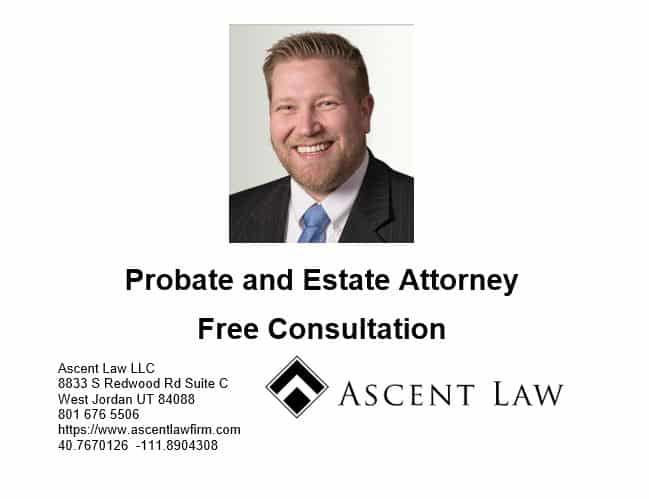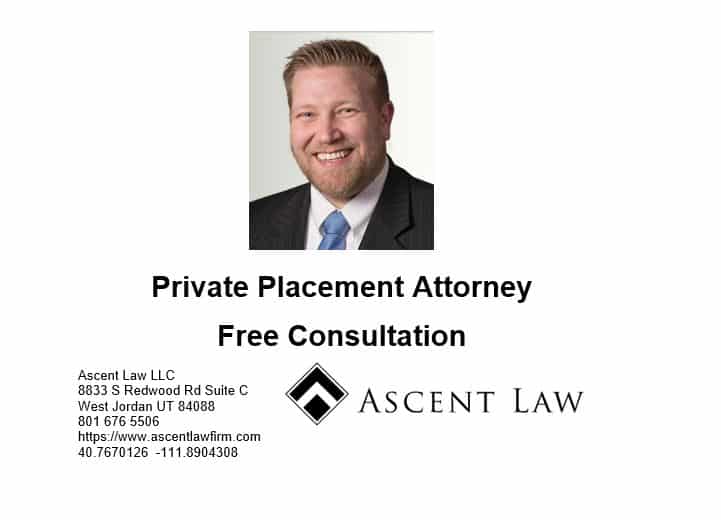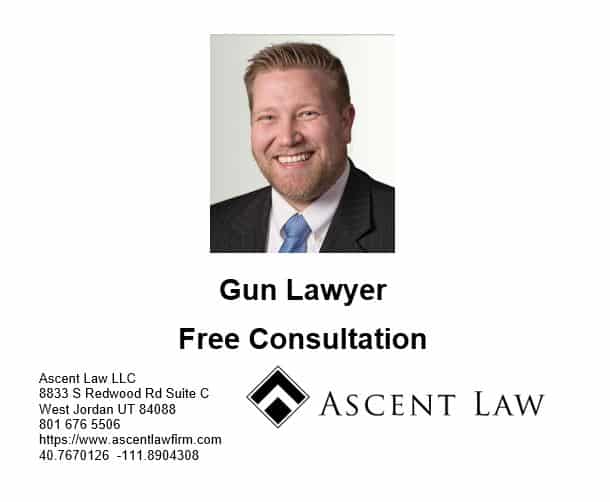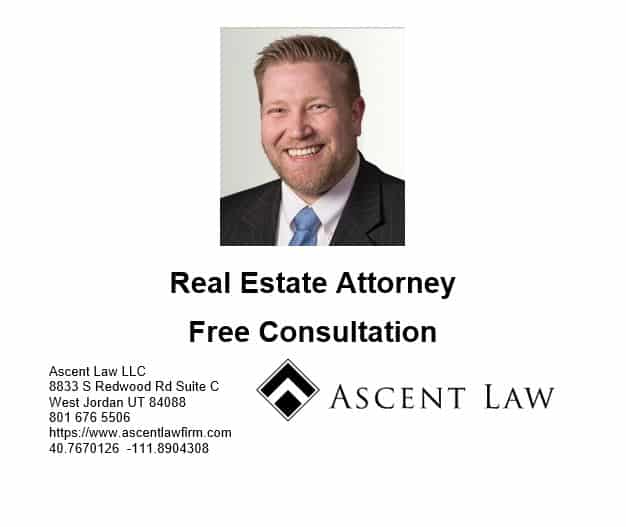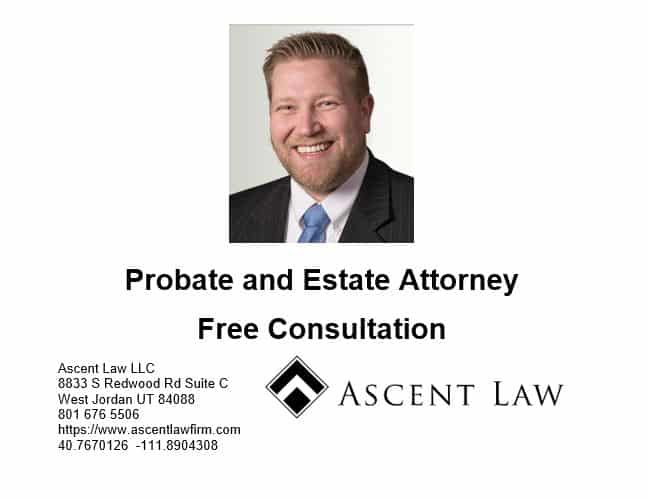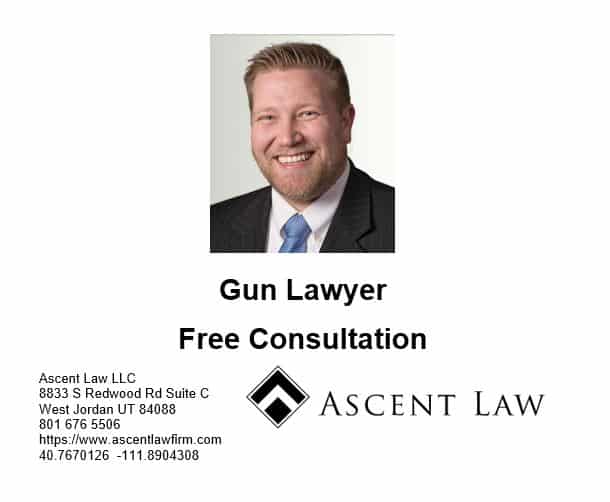
The Gun Control Act of 1968, as amended by the 1994 Brady Handgun Violence Prevention Act, prohibits certain people from possessing a firearm. The possession of any firearm by one of these “prohibited persons” is a felony offense. It is also a felony for any person, including a registered Federal Firearms Licensee to sell or otherwise transfer any firearm to a person knowing or having “reasonable cause” to believe that the person receiving the firearm is prohibited from firearm possession.
There are nine categories of people prohibited from possessing firearms under the Gun Control Act:
• Persons under indictment for, or convicted of, any felony crime punishable by imprisonment for a term exceeding one year
• Fugitives from justice
• Persons who are unlawful users of, or addicted to, any controlled substance
• Persons who have been declared by a court as mental defectives or have been committed to a mental institution
• Illegal aliens or aliens who were admitted to the United States under a nonimmigrant visa
• Persons who have been dishonorably discharged from the Armed Forces
• Persons who have renounced their United States citizenship
• Persons subject to certain types of restraining orders
• Persons who have been convicted of a misdemeanor crime of domestic violence
In addition, most persons under 18 years of age are prohibited from possessing handguns. These federal laws impose a life-long ban on gun possession by anyone convicted of a felony, as well as those merely under indictment for a felony. In addition, the federal courts have held that under the Gun Control Act, persons convicted of felonies are banned from owning guns even if they never serve jail time for the crime.
Prohibited Persons
Prohibited persons” may not possess firearms or ammunition. It is also unlawful to knowingly give a prohibited person firearms or ammunition. Those restrictions seem straight-forward, but there are unique definitions and exceptions that apply. These details should be understood so that you know exactly who is a prohibited person and precisely what they are prohibited from possessing. There are two categories of persons who may not possess firearms or dangerous weapons under Utah law. Penalties for weapons possession by category I restricted persons are more severe than the penalties for possession by category II restricted persons.
Category I covers persons who have “been convicted of any violent felony” or are “on probation or parole for any felony” or have been “within the last 10 years an adjudicated delinquent for an offense which if committed by an adult would have been a violent felony”. Under Utah law, “A Category I restricted person who intentionally or knowingly agrees, consents, offers, or arranges to purchase, transfer, possess, use, or have under his custody or control, or who intentionally or knowingly purchases, transfers, possesses, uses, or has under his custody or control any firearm is guilty of a second degree felony.”
Category II covers persons who have “been convicted of or are under indictment for any felony” or have “within the last seven years been an adjudicated delinquent for an offense which if committed by an adult would have been a felony” or are “an unlawful user of a controlled substance” or have “been found not guilty by reason of insanity for a felony offense” or have “been found mentally incompetent to stand trial for a felony offense” or have “been adjudicated as mentally defective as provided in the Brady Handgun Violence Prevention Act” or are “an alien who is illegally or unlawfully in the United States” or have “has been dishonorably discharged from the armed forces” or have “renounced his citizenship after having been a citizen of the United States”. A Category II restricted person who purchases, transfers, possesses, uses, or has under his custody or control any firearm is guilty of a third degree felony under Utah law. In addition to any person who has been convicted of any offense listed under §6105(b), the following persons shall not be eligible for or permitted to possess a firearm:
• You are a fugitive from justice.
• You were convicted of an offense under the “Controlled Substance, Drug, Device and Cosmetic Act”, or any equivalent Federal statute, or equivalent statute of any other state, that may be punishable by a term of imprisonment exceeding two years.
NOTE: This refers to the maximum sentence you could have received, not the actual sentence you did receive.
• You have been convicted of Driving Under the Influence of Alcohol or Controlled Substance (DUI) on three or more separate occasions within a five-year period. For the purposes of this paragraph only, the prohibition of possessing firearms shall only apply to transfers or purchases of firearms after the 3rd conviction. This means that you may keep what firearms you have if this is the only paragraph that applies to you. However, you may not transfer or receive any firearms.
• You have been adjudicated as an incompetent or you have been involuntarily committed to a mental institution for inpatient care and treatment under the Mental Health Procedures Act. This paragraph does not apply to any proceeding under §302 of the Mental Health Procedures Act if the examining physician issued a certification that inpatient care was not necessary or that the person was not committable.
• You are an alien who is illegally or unlawfully in the United States.
• You are the subject of an active final protection from abuse order issued pursuant to 23 Pa.C.S. §6108, are the subject of any other active protection from abuse order issued pursuant to 23 Pa.C.S. §6107(b), which provided for relinquishment of firearms during the period of time the order is in effect or are otherwise prohibited from possessing or acquiring a firearm under 18 U.S.C. §922 (g)(8). This prohibition shall terminate upon the expiration or vacation of the order or portion thereof relating to relinquishment of firearms.
• You, as a juvenile, were adjudicated delinquent of the below mentioned offenses, or under any equivalent Federal statute, or statute of any other state:
• §2502 (relating to Murder)
• §2503 (relating to Voluntary manslaughter)
• §2702 (relating to Aggravated assault)
• §2703 (relating to Assault by prisoner)
• §2704 (relating to Assault by life prisoner)
• §2901 (relating to Kidnapping)
• §3121 (relating to Rape)
• §3123 (relating to Involuntary deviate sexual intercourse)
• §3301 (relating to Arson and related offenses)
• §3502 (relating to Burglary)
• §3701 (relating to Robbery)
• §3923 (relating to Theft by extortion) when the offense is accompanied by threats of violence
• You, as a juvenile, were adjudicated delinquent of any of the offenses mentioned in §6105(b) or under any equivalent Federal statute, or statute of any other state with the exception of those crimes mentioned in paragraph 7. This prohibition will terminate 15 years after the last applicable delinquent adjudication or upon the person reaching the age of 30, whichever is earlier.
• You are prohibited from possessing or acquiring a firearm under federal law because you have been convicted of a misdemeanor crime of domestic violence*. If the offense which resulted in the prohibition under 18 U.S.C. §922(g) was committed by a person in any of the following relationships:
(i) the current or former spouse, parent or guardian of the victim;
(ii) a person with whom the victim shares a child in common;
(iii) a person who cohabits with or has cohabited with the victim as a spouse, parent or guardian; or
(iv) a person similarly situated to a spouse, parent or guardian of the victim; then the relationship need not be an element of the offense to meet the requirements of this paragraph.
• You, as the subject of a temporary or active final protection from abuse order, were convicted under 18 Pa.C.S. §6105(a.1 of failing to relinquish a firearm or other weapon or ammunition to the Sheriff or other law enforcement agency as required by the order. This prohibition terminates five years after the date of conviction, final release from confinement or final release from supervision, whichever is later.
What to Do if You’re a Prohibited Person
If you are a prohibited person, stay away from firearms for as long as you remain a prohibited person. Possession of a firearm is enough to get you into trouble – it doesn’t have to be your firearm. Also, be extremely careful near firearms even if you’re not physically holding one. Depending on the situation, having access to a nearby firearm might be enough to get you into trouble. If you want to regain your right to possess a firearm, you should contact an attorney in the state where the event happened that keeps you from possessing firearms. You may be able to overturn your status as a prohibited person. It is rare, but it can happen. Whatever you do, do not try to have someone else get a firearm or ammunition for you.
Prohibited Purchasers In Utah
Federal law prohibits certain persons from purchasing or possessing firearms, such as felons, certain domestic abusers, and certain people with a history of mental illness. Utah law provides that, subject to certain limited exceptions, no person shall possess a firearm if he or she:
Is a Category I restricted person, meaning a person who:
• Has been convicted of any violent felony;
• Is on probation or parole for any felony;
• Is on parole from a “secure facility”;or
• Within the last 10 years has been adjudicated delinquent for an offense which if committed by an adult would have been a violent felony; or
• Is an alien who is illegally or unlawfully in the U.S.;
Is a Category II restricted person, meaning a person who:
• Has been convicted of a felony or, within the last seven years has been adjudicated delinquent for an offense which if committed by an adult would have been a felony;
• Is an unlawful user of a controlled substance;
• Is in possession of a dangerous weapon and is knowingly and intentionally in unlawful possession of a Schedule I or II controlled substance;
• Has been found not guilty by reason of insanity of, or has been found mentally incompetent to stand trial for, a felony offense;
• Has been adjudicated mentally defective as provided in the Brady Handgun Violence Prevention Act, codified at 18 U.S.C. § 921 et seq. or has been committed to a mental institution;
• Has been dishonorably discharged from the armed forces;
• Has renounced one’s citizenship after having been a citizen of the U.S.;
• Is subject to a final domestic violence protective order if the order includes a finding that:
• The respondent or defendant represents a credible threat to the physical safety of an intimate partner as defined by federal law; or
• Explicitly prohibits the use, attempted use, or threatened use of physical force that would reasonably be expected to cause bodily harm against an intimate partner or the child of an intimate partner; or
• Has been convicted of a domestic violence misdemeanor.
Individuals subject to a sexual violence protective order are prohibited from purchasing or possessing firearms so long as: The respondent has been given notice of the petition for a protective order and an opportunity to be heard; and the petition establishes:
• By a preponderance of the evidence that the respondent committed sexual violence against the petitioner; and
• By clear and convincing evidence that the respondent’s use or possession of a firearm poses a serious threat of harm to the petitioner or a family or household member designated in the protective order.
Additionally, a person who has been convicted of a crime for which the penalty was enhanced due to the offense being “gang-related” may not possess a firearm or ammunition within a minimum of five years after the conviction. Utah repealed its prohibition against firearm possession by a person currently under indictment for a felony.
A Category I restricted person who intentionally or knowingly agrees, consents, offers, or arranges to purchase, transfer, possess, use, or have under one’s custody or control, or who intentionally or knowingly purchases, transfers, possesses, uses, or has under one’s custody or control any firearm is criminally liable for a second degree felony.
A Category II restricted person who purchases, transfers, possesses, uses, or has under one’s custody or control any firearm is criminally liable for a third degree felony. A person may be subject to the restrictions of both categories at the same time. If a finding is made that the subject of a child protective order or an ex parte child protective order may pose a serious threat of harm to the minor, the order may prohibit the subject from purchasing, using or possessing a firearm.
Gun Lawyer Free Consultation
When you need legal help with gun law in Utah, please call Ascent Law LLC for your free consultation (801) 676-5506. We want to help you.
8833 S. Redwood Road, Suite C
West Jordan, Utah
84088 United States
Telephone: (801) 676-5506
Recent Posts
Firearms Dealers And Licensing Requirements
Can A Limited Liability Company Be A Qualified International Buyer?
Ascent Law St. George Utah Office
Ascent Law Ogden Utah Office
Source: https://www.ascentlawfirm.com/persons-prohibited-from-possessing-a-firearm/

